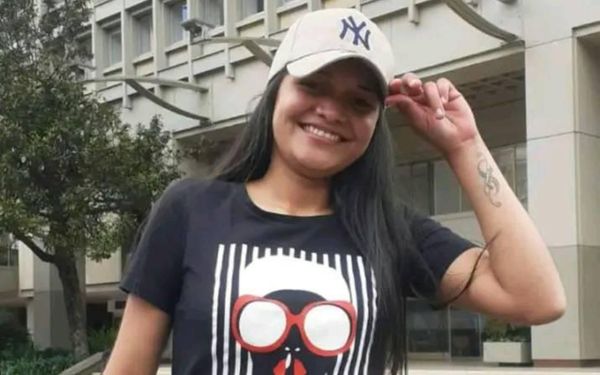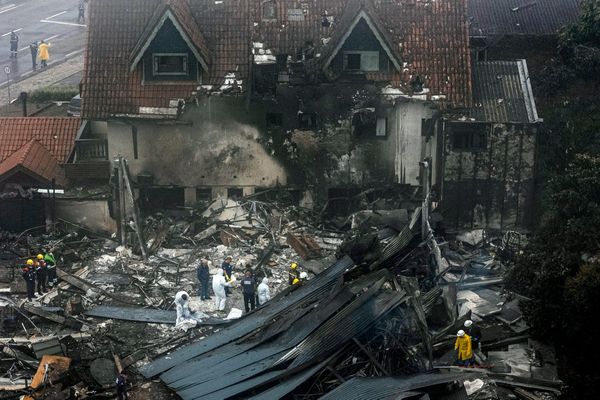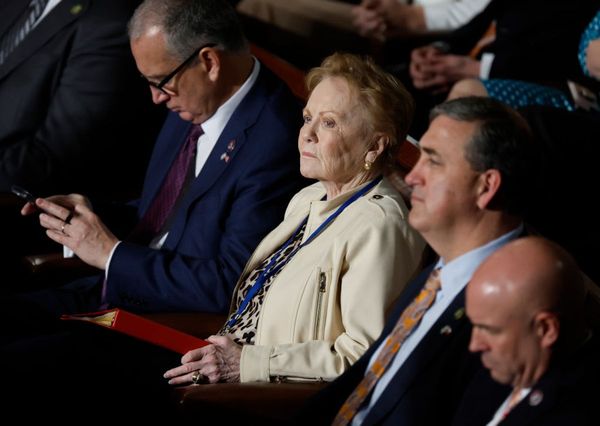
When the Australian Electoral Commission (AEC) announced last Friday that the electorate of North Sydney, currently held by independent MP Kylea Tink, would be abolished, social media was awash with Hard Solo memes — a reference to Tink’s role in the push to prevent the alcoholic soft drink being sold under that name.
Hard Solo, it seemed, had taken its revenge.
Soft (or hard) drink jokes aside, Tink says she is “gutted” at Friday’s announcement, adding that her community is experiencing a “sense of grief” at being split in thirds. The former charity CEO was the first of 2022’s teal crop to announce a run, arguably inspiring some of the others. If she does not end up finding another seat, she’ll be first to go.
Tink hasn’t been shy about speaking out this term (she made headlines last year when she called out Parliament’s aggressive tone) but now, with not much to lose, she plans to be even more outspoken in the months ahead.
“There is no doubt that there are forces at play in this country that do not want people like me involved in a game that they think they have the right to play,” she says. “I will not go quietly.”
Tink won’t comment on future plans. There’s speculation she could run in Liberal-held Bradfield, which will take in part of North Sydney. But Bradfield already has an independent candidate, Nicolette Boele, who generated a 12.3% swing at the last election, and currently refers to herself as the “shadow representative”. Tink could still run, though it’s clearly a delicate situation — one that raises questions about how the community independents organise themselves.
She’s also somewhat baffled at the way the process has played out. Her office found out at the same time as the public, and still hasn’t had any direct contact from the AEC.
“I can’t get any information on what it means for my staff … does this mean they’re effectively redundant?” she asks. “Like many other things in the parliamentary and political frame, it’s really interesting to view it through the lens of an independent … the bureaucracy is a bit broken and a bit disconnected to the idea of politics as representation as opposed to party power.”
Tink intends to appeal the draft redistribution, although it’s unlikely to change much.
“It means we’ve got less time to do the things that we had hoped to achieve,” she admits. “We’ll just double down and make sure we make the most of every single minute.”
On her track record, while the mum of three with a background in public health was genuinely incensed by Hard Solo, it’s been far from the focus of her short-lived political career. She’s taken up issues ranging from fuel efficiency standards to the single parenting payment to a royal commission into immigration detention — albeit without a balance of power.
I ask Tink what her priorities are for her remaining time in office. She speaks for 10 minutes straight, reeling off ideas related to housing affordability, climate oversight, women’s safety, the need to raise welfare, and changes to the timing of HECS indexation. But it’s human rights on which she has the most to say — a pet issue she added to the climate-gender-integrity platform chosen by North Sydney’s community group. Her focus is on the treatment of asylum seekers and the need for a Human Rights Act, noting that Australia is the only democracy without one.
Tink was part of a recent inquiry which recommended a Human Rights Act. It’s something she expects to take two or three terms — longer than she now has. She hopes to use her time to elevate the discussion, “helping people understand their rights and why they should care that they’re currently not protected”, and, ideally, get the major parties to commit.
It seems unlikely she will get the Coalition on side. Tink is critical of its dissenting report, joking that it could’ve been written before the hearings started. She believes its opposition to the idea comes down to control. “The Coalition 100% believes it should have the freedom to make the decisions around our society that it wants to make, uninhibited in any way, shape or fashion,” she argues.
It’s not just the LNP. Tink reckons Labor is similarly hesitant about creating rights by which all other laws must abide, suggesting neither side wants to dilute their power.
“There’s this phrase that’s often thrown about by the two major parties, they call it ‘parliamentary supremacy,’ but what they actually mean is government supremacy,” she says, arguing both have a vested interest in it. “It’s time that Australians took our power back and said, as our government, you will have to abide by these basic rules in terms of how you make decisions.”
It’s a point Tink returns to repeatedly, particularly when I ask about the community independents movement. I don’t think I’ve spoken to any MP quite so enthused about the power of community to take back control.
“It would be better if all Australians understood what’s going on in the system and decided to exert more control over that system,” she says. “Australians are very laissez-faire and I think most Australians would say ‘we live in a great country, you know, we’re a democracy.’ Our democracy is not very healthy at the moment.”
“A lot of parts of our society, whether that’s business, whether it’s government, there’s lots of entities at play that really don’t like everyday Australians paying much attention to what they’re doing,” she says. She cites the apocalyptic satire Don’t Look Up. “Hard Solo to me is a classic case. The makers of Hard Solo really did not want parents and people who care about the vulnerable in our community to look up. They really didn’t want anyone taking a look at that and going, hang on, is that cricket? I’m never going to stop saying to Australians, please look up.”
This is an instalment of Forget the Frontbench, a column interrogating politicians who wield power beyond the major parties.







